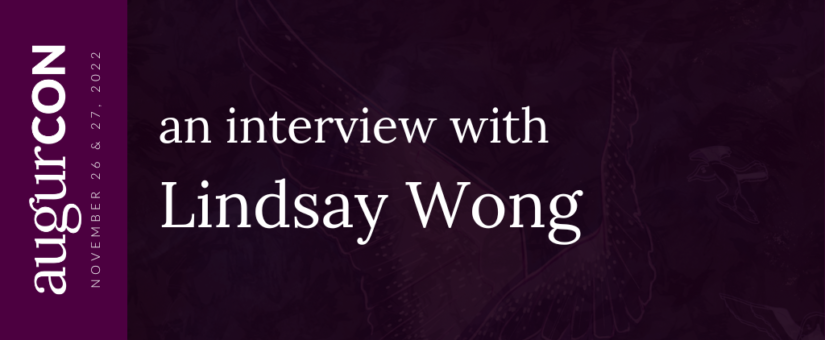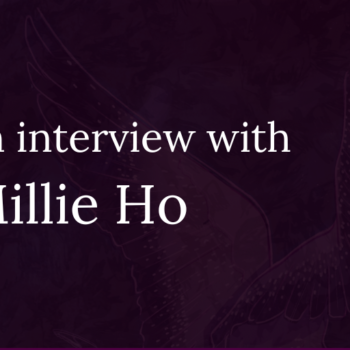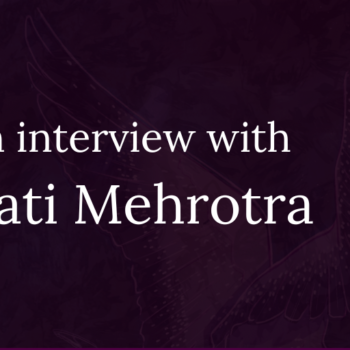
An interview with Lindsay Wong #AugurCon2022
- Posted by Augur Blog
- On November 24, 2022
- 0 Comments
- author interview
On November 26 & 27 we’re hosting our second-ever AugurCon, our virtual celebration of speculative literatures! We’re joined by over 45 amazing guests, including authors, poets, editors, and publishing professionals, to explore the intersections of the world we know—and the ones we dare to imagine.
We connected with Lindsay Wong, author of the award-winning, bestselling memoir The Woo-Woo, who is a panelist at this year’s AugurCon.
Get your ticket to attend her panel:
Canspec & Canlit: Literary Lines & Arbitrary Limits
Saturday, November 26 at 11 AM–12 PM EST / 8–9 AM PST
To see the full weekend program schedule, visit our website.
Tell us about your writing process! You began as a memoirist; what attracted you about writing horror? Do you have any favourite writing haunts (i.e. places) or rituals? Does your process vary depending on the genre you write?
Doesn’t real life emulate horror or is horror actually real life?
It just felt like a very natural thing to pivot to the immigrant horror story. Horror is about using metaphor to tell an uncomfortable story about what happened to you, whereas memoir means being not terribly creative with the truth.
To be honest, I became a writer so I could stay home all day in my pajamas and devour junk food. Not because I enjoy the act of writing. I actually wear pajamas 24 hours, 6 days a week, and only when I am expected to teach class, I try my best to find a pair of pants that fit and then I have to force myself to squeeze into them (sigh!). Before I write in the morning, I make a massive pot of coffee although I have recently cut down from 12 cups to 4 cups. I drink diet coke. Smoke a joint. Breakfast is Cadbury mini eggs, Twix bars, Kettle corn, ice cream, chocolate chex. I snack nonstop throughout the day. I guess that’s my writing ritual: junk food, weed, and sentences. I love to lie in bed and write.
I don’t think my writing process changes with the genre. Before I had a teaching job, I was extremely broke and would have to share my writing space with six roommates (i.e. a horror story in itself), so I would learn to write with unmitigated chaos around me. I think that’s why I am not very particular with my process or place. I can honestly write anywhere. Except the time I was in Bali for a festival and there were fire ants on my mattress and there was a lizard with a yellow googly eye who stared at me in the outdoor bathroom so I couldn’t go to the toilet for 12 days. I can’t handle insects well at all!
(Winnipeg friends who know how to drive, please take me to Bulk Barn/Costco for writing snacks! I’m running dangerously low!)
You’re such a multimodal writer! You’re on our panel talking about the intersections between CanSpec and CanLit, and once your short story collection comes out next year, you’ll have published a memoir, a novel, and a story collection. Does moving between storytelling mediums feel natural to you? What are some of the challenges unique to each medium that really excite and inspire you? What’s another genre of writing you’d like to try?
I don’t really think of jumping between genres because prose and storytelling are, in essence, the same; words on the page follow all the rules of good craft. There are the typical elements of plot, tension, conflict, and character development in both creative nonfiction and fiction. What’s different is that writing fiction sometimes feels a bit like purposely lying or fabricating to the reader, and it’s a weird feeling to have, whereas writing memoir sometimes feels like I’m jumping out of a window naked, setting myself on fire, and being like, look at me, look at me! Memoir feels very extroverted in some ways, and fiction lets me hide the parts of myself that I didn’t put in my memoir.
I’d be open to trying every genre of writing except poetry. I just don’t know where or how to start. Don’t tell my students or the department chair, but I am terrified of verse, haha!
What spec fic subgenre are you particularly excited about? What’s sparking your imagination in Canadian speculative literature these days?
The uncanny truly excites me—the way brilliant authors like Kim Fu and Carmen Maria Machado are merging literary fiction with speculative, and seeing how they get to showcase the best of both worlds. Readers get to experience all the fantastical elements that you might find in horror and science fiction, but it’s told to us in these beautifully written, thoughtfully crafted, exquisite tales. I love genre fiction and I also love literary fiction, so it’s very thrilling to see my favourite parts of the genres merge. I also love a good horror story but I also like comedy and I love to laugh, so I want to see more blurrings of different categories that were previously kept separate. Currently, in Can Lit, authors are creating really cool hybrid Frankenstein monsters but instead of rushing to set them on fire, readers are cheering and running towards the monster to embrace it. Yay!
Moving between media and even genres is something that gives many authors trepidation, but you balance the evolution so well. When you think about your career so far, what’s one of the moments that keeps you going—a career highlight, a beautiful moment, an inspiring mentor, or something you’re just incredibly proud of? How has that stayed with you as you’ve tried out new ways of writing?
Haha, that is nice of you to say that I’m handling the evolution well. I haven’t really thought about it, but maybe I’ll start crying and hyperventilating and foaming at the mouth closer to the publication date. Right now, I’m probably in the denial part about switching genres.
My favourite moment that keeps me going is when the new books first arrive from the publisher. I find it thrilling each time. Sometimes I put a big bow on the box and pretend it’s a present and I keep re-opening it! Can you tell that I didn’t get enough gifts when I was kid? Haha. I just love getting finished copies of my books because it means all the toil and pain and toothache is finally solidified between the covers. It’s actual proof that the fucking hemorrhoids and wrinkles were worth it.
The free books/ARCs from publishers are always really nice, and the bathroom hangouts are a highlight too. At every event pre-pandemic, we would always hang in the bathroom, gossip, and take a million fucking photos. One time the writers all carried me around in the bathroom at the BC Book Prizes. We have a ton of fun at events.
(Bathroom party!!!)
Say you’re talking to a writer who’s just starting out, who just penned their first poem or short story. What is the number one thing you would tell them that you wish someone had told you—the good, the ugly, the hopeful?
Congratulate yourself. Celebrate by getting a new tattoo or buying a coveted pair of shoes or treating yourself to Botox! It’s an incredible fucking accomplishment to finish a project, no matter how small it seems. A writing career is LONG and takes major endurance because once you achieve something, goal posts shift. No piece of writing, no 300-page manuscript, is ever the same and you have to approach it with a fresh perspective. It’s like the villain always morphs into a different form and you have to find a sneaky way to defeat it.
Whether it is event number 1 or event 60, I always feel like the organizers have invited the wrong person, like they made an actual mistake or just invited me so they can prank me later à la Carrie. But I think that might be a common feeling for BIPOC and marginalized writers who don’t come from traditional writing backgrounds. It’s sometimes hard to feel like you belong in a literary space. You’ll never really feel like you’ve “made it” and you will never feel successful because there’s always more to do. Sadly, the work never feels done. Also, rejections will happen every day, but they are usually nicer because they are filtered through your agent, who doesn’t want to hurt your feelings.
The good? Author friendships that you make at festivals and conferences will sustain you during the shittiest moments (lawsuits, weird publishing issues) and can be long lasting. No one understands you more than other writers, especially if they are at the same stage of career as you.
The ugly? You have to be in the Sisyphus-mindset and probably be moderately insane to want to sit down in a room alone and type all day. Did I mention that I don’t like the act of writing at all?
The hopeful? You sometimes get to eat really good food on tour or at literary events. I always order a rare filet mignon, twice baked potato and a crème brulée. They usually feed writers well because they know we’re typically broke and hungry. 🙃
Hear more from Lindsay: Get your ticket to AugurCon 2022
LINDSAY WONG is the author of the critically acclaimed, award-winning, and bestselling memoir The Woo-Woo, which was a finalist for Canada Reads 2019. She has written a YA novel entitled My Summer of Love and Misfortune. Wong holds a BFA in creative writing from the University of British Columbia and an MFA in literary nonfiction from Columbia University. She currently teaches creative writing at the University of Winnipeg. Follow her on Twitter @LindsayMWong, Instagram @Lindsaywong.M, or visit www.lindsaywongwriter.com.
Join Lindsay at AugurCon! Our panel on Canspec & Canlit: Literary Lines & Arbitrary Limits takes place on Saturday, November 26. Get your ticket to AugurCon 2022 now!




0 Comments